Building a Life in Saint Paul
A life well-lived, remembered by heart
Betty Tripp shared her story with her granddaughter, Katie, in the summer of 2011. Her life story is bookended by two of her favorite poems, recited by heart.
"I'm commonly called Noni, but my real name is Betty. I was born way, way back in history- 1916- in Saint Paul, Minnesota. It was a great place to be born and to live." Betty lived with her parents and brother Bob, who was two years older.
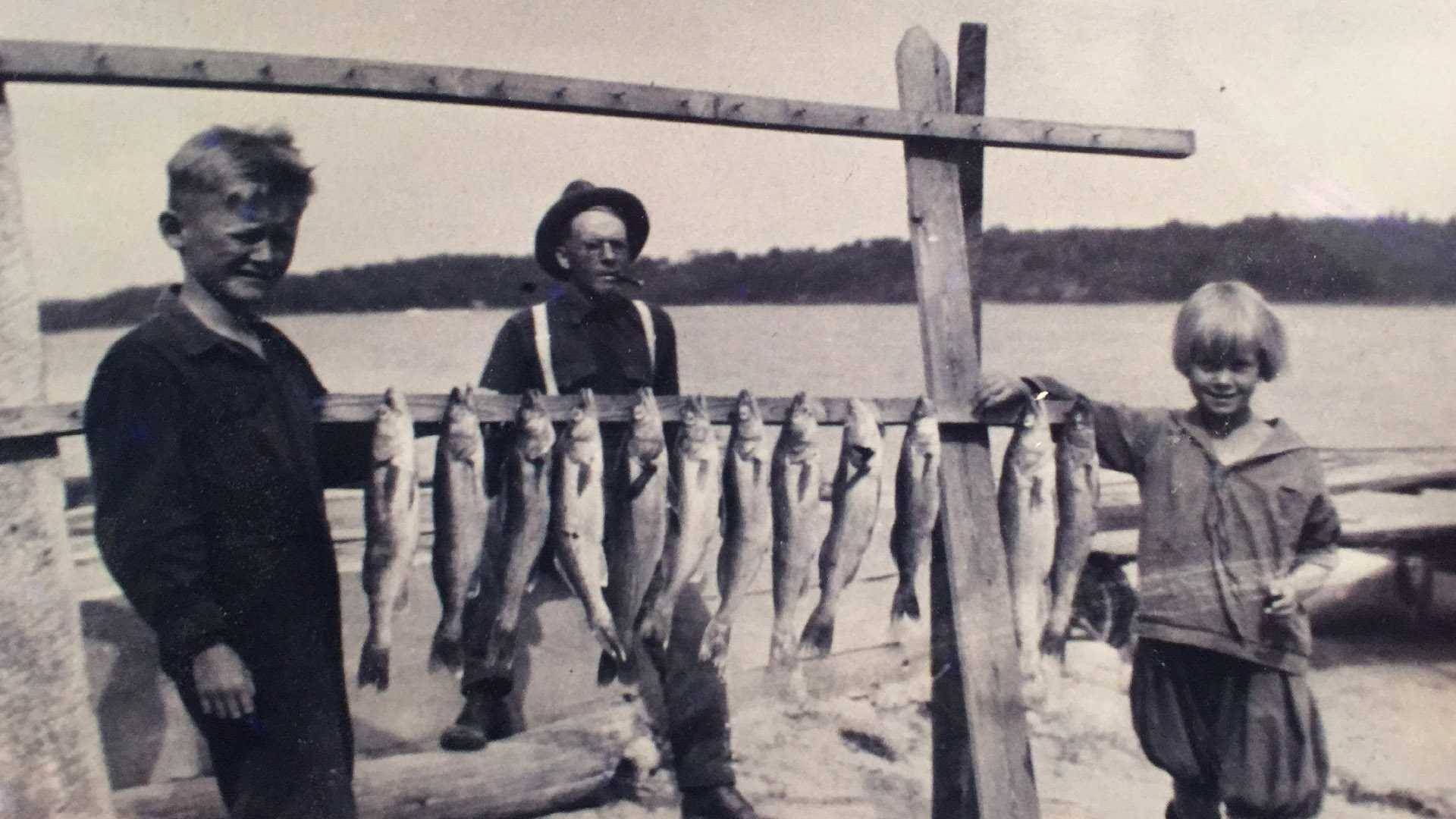
A Saint Paul girl at heart, she recalls joining her daughter in 2011, on a nostalgia trip visiting all of the homes she had ever lived. She remembered each address by heart of each place she had ever lived.
"I mean, how daring to go across an almost unknown ocean in a ship like that."
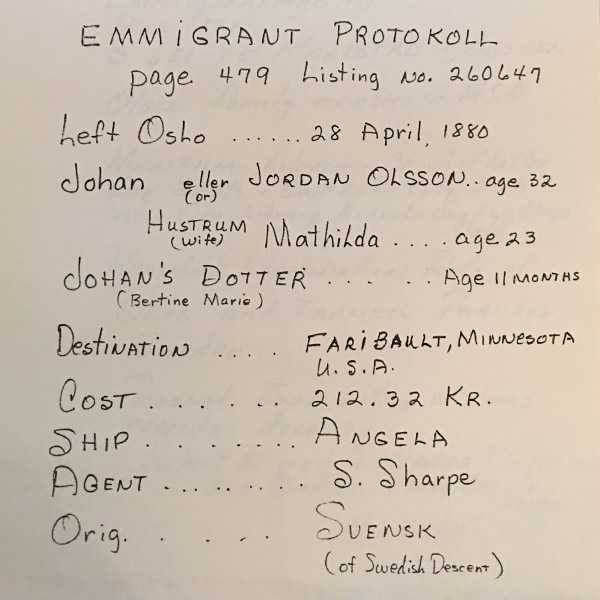
Their journey began in Oslo on April 28th, 1880 and they took all of their belongings in a little white box painted with ornate floral patterns called a hatatina. "I mean, how daring to go across an almost unknown ocean in a ship like that. Can you imagine?," Betty asked of the daring journey of her family.
Her grandparents were Swedish, but a depression, caused by a potato famine in Sweden, forced them to move across the border into Norway where they could find more job opportunities. Betty's mother, Bertine Marie Olsson, was born in Norway, although she was considered a Swedish citizen. When Bertine Marie was only 11 months old, she and her parents boarded a ship called the Angela, headed for America.
Their long journey led them to Ellis Island where they were processed through immigration.
Their final destination? Fairbault, Minnesota where they had a relative. Her father began work as a stone mason, but later moved to St. Paul for the opportunity of establishing a career as a building contractor, in which he did very well.
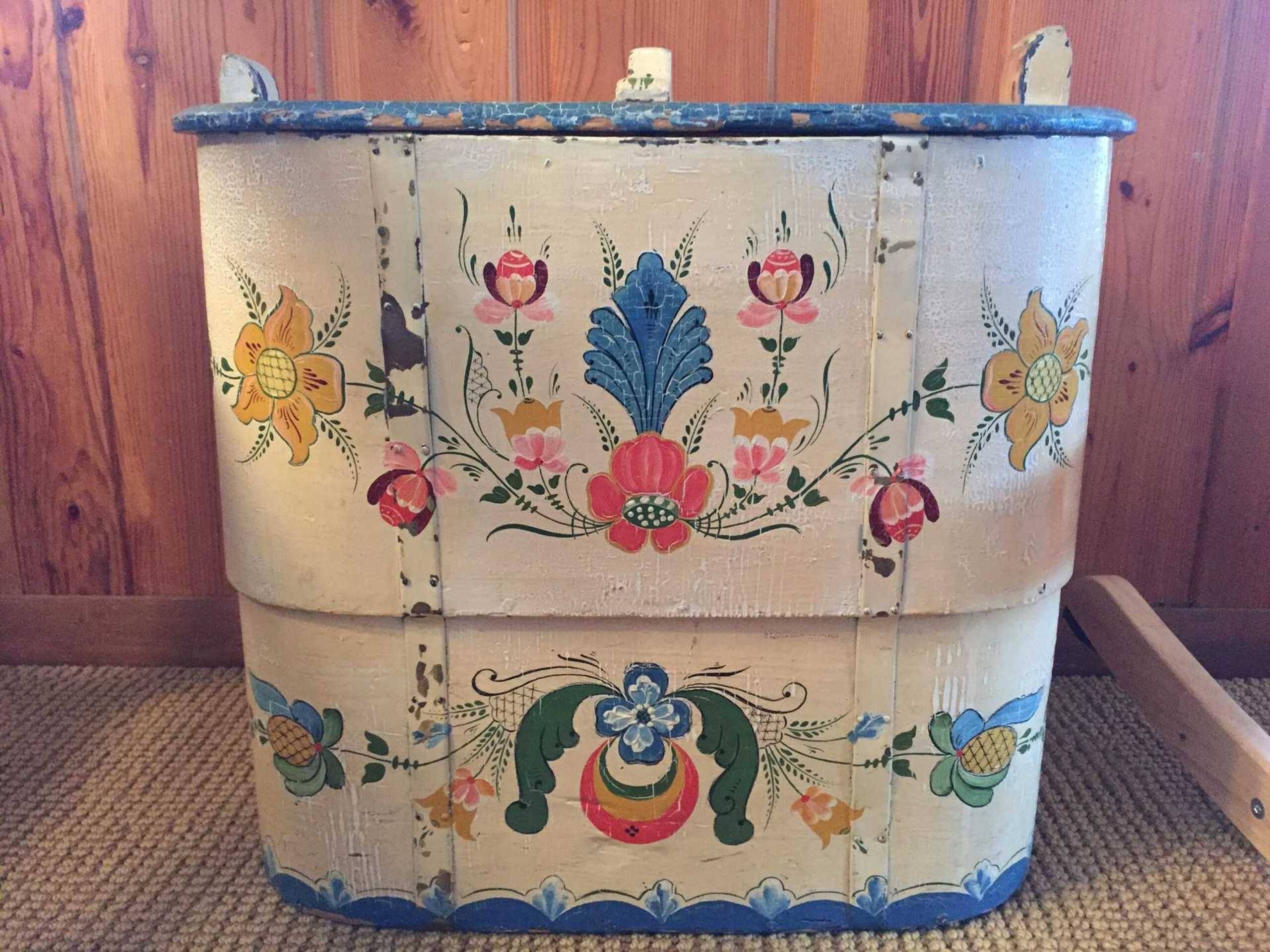
"35 cents an hour went a long ways in those days."
Betty shared, "In 1920, things changed drastically for the country. But they didn't change drastically for me really, because we didn't have a lot to begin with." Betty went through high school in the worst part of the depression. But unlike many of her friends who had to get jobs and work to earn money for the family, her father didn't lose his job. Betty felt very fortunate that her parents wanted her to go to college. "If you had $25 you were in," she described of the tuition for going to Macalester College. "There were not strict requirements like there are now. I took a full business curriculum. I learned typing and shorthand, so I was in big demand in college and could work as much as I wanted to. 35 cents an hour went a long ways in those days," she said. Her entire time at Macalester was during the Depression as well.
"The best thing I got out of college was getting a wonderful husband."
City girl meets small town boy was how she described her love story with Dean Tripp. Their friendship turned into a marriage in 1940, and the two began their life together. "The best thing I got out of college was getting a wonderful husband," she shared.
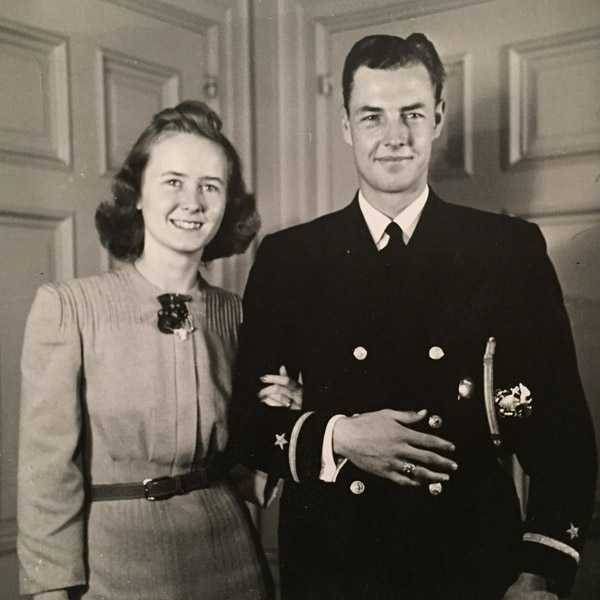
As they were driving to have dinner with friends, they turned the radio on and got the news that the Japanese had bombed Pearl Harbor. She described that moment, saying "Dean turned to me and said, Well, you know what that means for us, don't you? I said, No, what does that mean for us? He said, It means that I'm going to have to go to war. And he did. He went off to training. I stayed with my parents and I taught Red Cross first aid- that was my contribution."
Dean served on a troop carrier and went to the African Invasion. He worked on small landing craft that took troops from the ship to the shore off of Casablanca. This was a very dangerous mission, as German planes flew overhead. "He was a sitting duck. He decided he'd rather be up there than down here," Betty said of this mission. His orders were changed to the Navy air corps as he had private pilot license before war.
"I joined him in Lockport, IL and then he was a flight instructor in Minneapolis. He was training in Pensocola to fly big troop transport plane- but never had to go overseas because the war ended. By this time, we had Betsy who spent her 1st birthday in Pensacola." They decided to move back to Minneapolis to resume their lives.
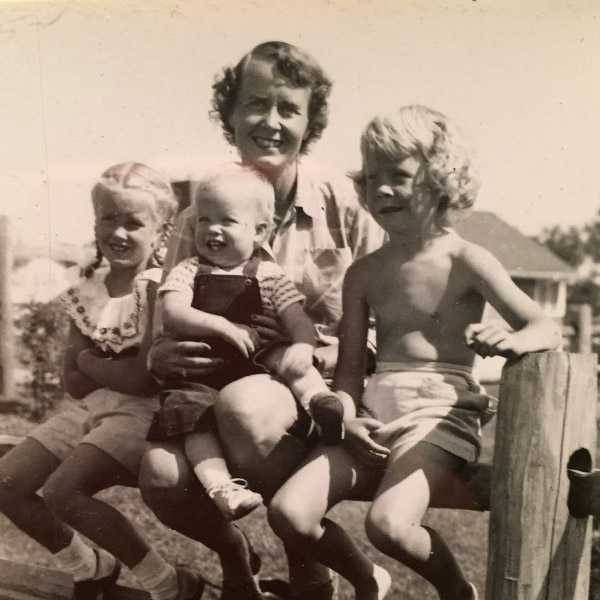
They first rented in St. Paul, then bought a lot in Edina and built a house for their growing family. "We had three more kids, and had a very happy life. We had a great life," Betty said.
She talks a lot in her interview about how a cabin up north has connected family through the years. "It's the best investment we ever made because it's been such a cementing thing for our family." Each year, cousins from across the country come to the cabin to spend time together and carry on the family traditions.
After suddenly losing her husband, Dean, to a heart attack at the age of 70, Betty picked up what she had left and decided to travel for the next ten years, putting her feet in 5 continents.
"You can imagine in 95 years, everything has changed."
"You can imagine in 95 years, everything has changed," she shared, reminiscing about using ice boxes, making everything from scratch, seeing gas lights in the streets, and driving on washboard gravel roads going up north. "Technology today is just unbelievable to me. I see somebody taking a picture with phones now. The telephone does everything! And the ipads, and iphones and I this and I that. The change in transportation- helicopters, airplanes, just fabulous," she said.
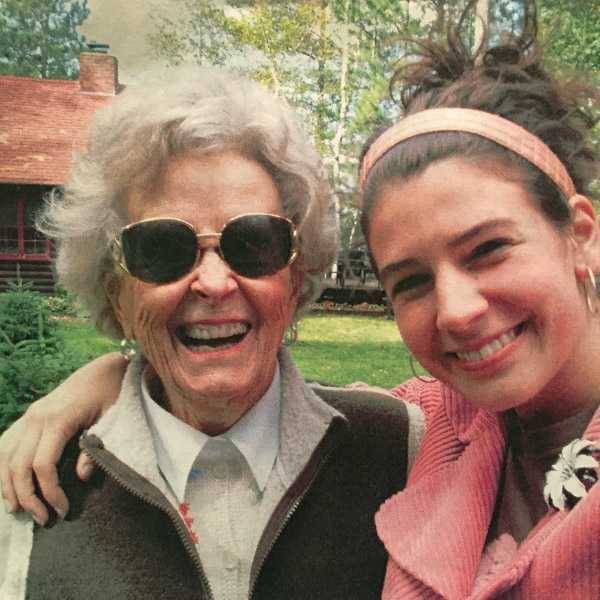
"I have learned not to give advice unless it's asked for," she said, but when asked for her advice she shared, "Religion and faith are so important. Whether we know it or not, we're very dependent on God." She added, "It doesn't cost anything to say something kind, and it means so much to the other person."
Author note:
I have learned so much about life through Noni. She is a woman that I have always looked up to, leaned on for wisdom, and admired for her curiosity, faith and courageous.
Betty passed away at 100 years old, just shy of her 101st birthday. We miss her dearly, and will continue to learn from her and the way that she lived her life.
Her favorite quote that she lived by is from Charles Swindoll:
"I am convinced that life is 10% what happens to me and 90% how I react to it."


